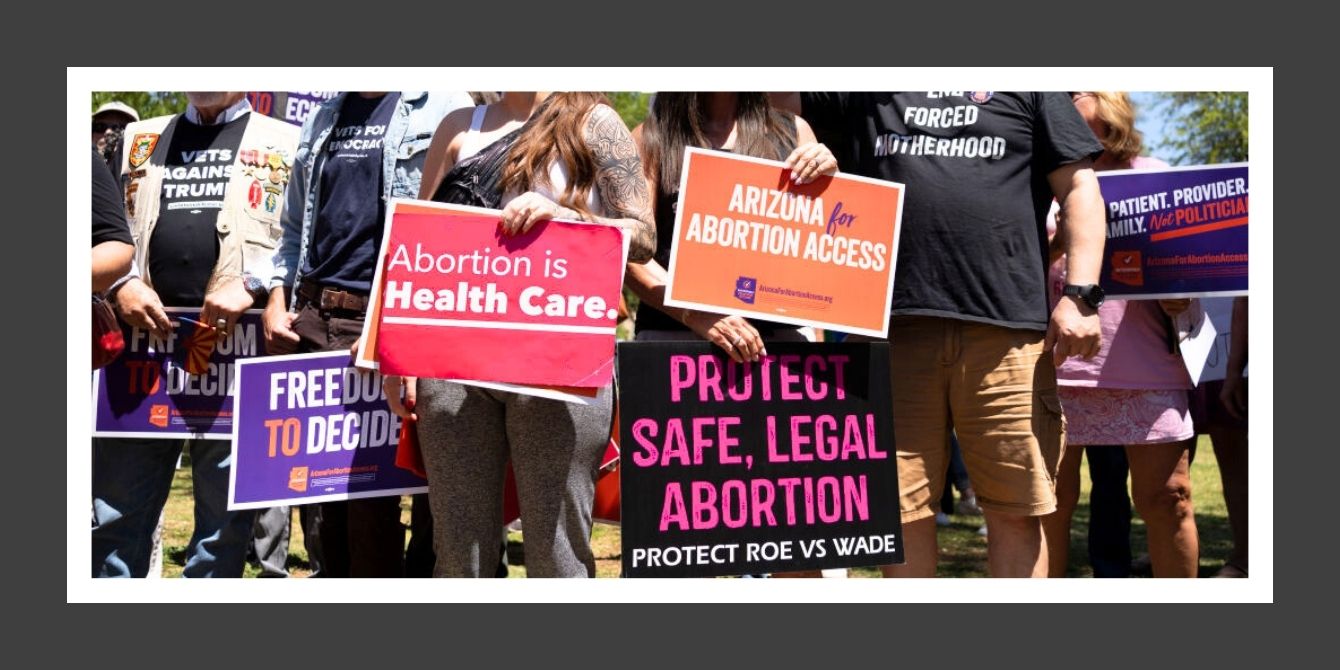According to a nationwide survey of about 4,000 women of reproductive age, the vast majority worry about abortion bans putting themselves or their loved ones in danger.
The survey, conducted by KFF, a nonprofit health policy research, polling, and news organization, found that two-thirds of women worry about their own livelihood (and that of their loved ones) should they find themselves wanting or needing to end a pregnancy. Respondents fell on both sides of the political spectrum, with 8 in 10 Democratic women and 4 in 10 Republican women fearful about their bodily autonomy in the U.S.
KFF conducted the survey between mid-May and mid-June, with most women expressing fear that they or their loved ones wouldn’t be able to access an abortion if they needed one. The data comes around the two-year anniversary of the overturning of Roe v. Wade, a Supreme Court decision that put abortion rights back into the hands of individual states. This means that abortion access is no longer federally protected, giving states the right to institute total bans and restrictions as they so choose.
As a result of Roe v. Wade being overturned, 41 states now have abortion bans in effect with limited restrictions, including 14 states with total abortion bans and 27 states with abortion bans based on gestational duration. Of those 27 states, eight ban abortion at or before 18 weeks’ gestation, while 19 states ban abortion at some point after 18 weeks. That means only nine states and the District of Columbia allow for abortion without risk.
Of the women polled, around 1 in 7 women ages 18 to 49 say they have had an abortion, with 14% of Democratic women and 12% of Republican women among them. Since the repeal of Roe, nearly 1 in 10 respondents shared that they personally know someone who has had difficulty getting an abortion, with more than two-thirds noting out-of-state travel was required to receive one.
With access to safe, affordable, and inclusive healthcare already a dire problem in so many states across the country, the ripple effects of safe abortion care have never been more important. More than a third of participants say it’s difficult to get abortion services where they live, and more than a quarter say they wouldn’t know how or where to get one if they needed or wanted one.
The data is abundantly clear: all patients—no matter where they live—deserve equitable access to reproductive care in all its forms. On the heels of the 2024 presidential election, Vice President Kamala Harris has advocated for protecting abortion rights and restoring federal protections. Former President Donald Trump, the Republican nominee, plans to maintain keeping abortion in state hands, with Project 2025 serving as a terrifying blueprint for what might unfold should we re-elect Trump and the Republican party.
It’s never been more vital to check your voter registration status and encourage those you know and love to do the same. Women’s healthcare—inclusive of abortion—affects all of us, but it doesn’t affect all of us equally, which means it’s up to us to ensure that pressure stays on those in power to protect and support us.

